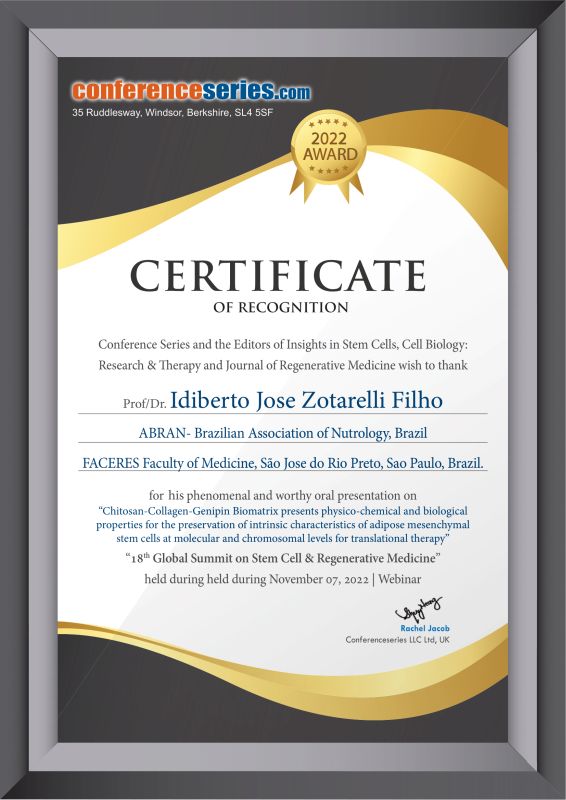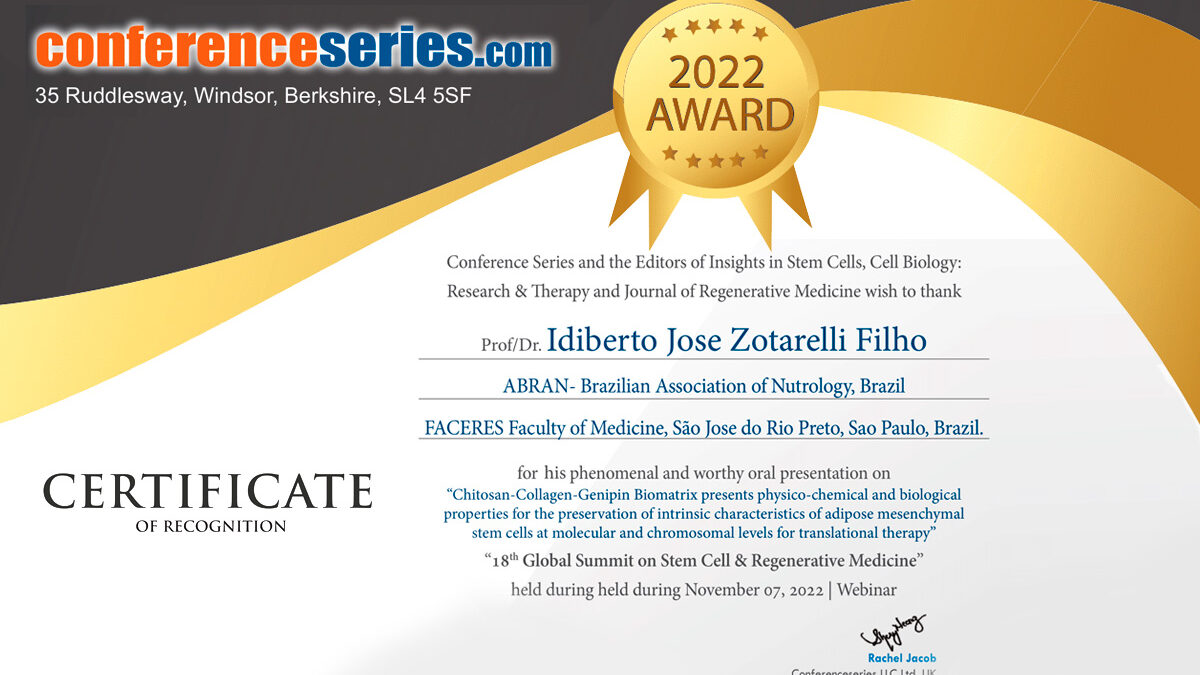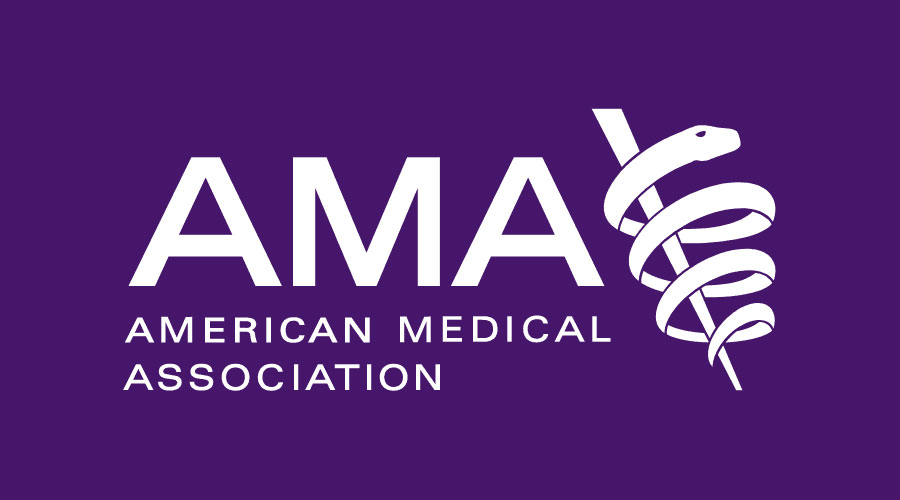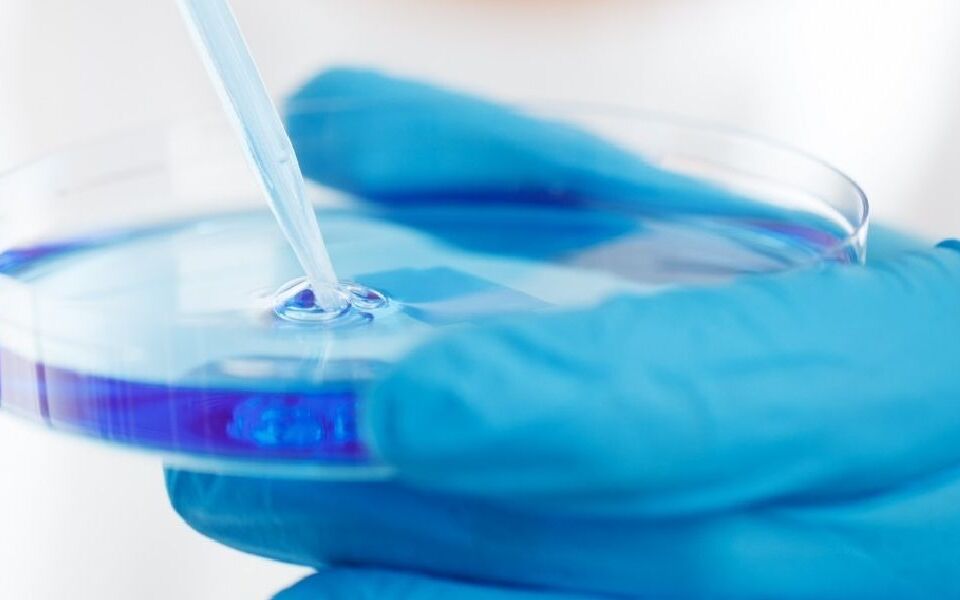
Dr. Idiberto Jose Zotarelli Filho acted as the Main Guest Associate Editor, for Frontiers in Neuroscience
10 de novembro de 2022
Dr. Idiberto Jose Zotarelli Filho publishes article in Central Nervous System Agents in Medicinal Chemistry
24 de novembro de 2022The work of Dr. Idiberto Jose Zotarelli Filho wins international award for the best scientific study in the world in Stem Cells and Medicine
Conference Series and the Editors of Insights in Stem Cells, Cell Biology: Research & Therapy and Journal of Regenerative Medicine.
Wish to thank Prof/Dr.Idiberto Jose Zotarelli Filho for phenomenal and worthy oral presentation on “18th Global Summit on Stem Cell & Regenerative Medicine” held during held during November 07, 2022 | Webinar.

18th Global Summit on Stem Cell & Regenerative Medicine
November 09-10, 2022 Rome, Italy
Idiberto Jose Zotarelli Filho
ABRAN- Brazilian Association of Nutrology, Brazil.
Title: Chitosan-Collagen-Genipin Biomatrix Presents Physico-Chemical and Biological Properties for the Preservation of Intrinsic Characteristics of Adipose Mesenchymal Stem Cells at Molecular and Chromosomal Levels for Translational Therapy
Biography
Idiberto Jose Zotarelli Filho is affiliated from ABRAN- Brazilian Association of Nutrology, Brazil.. He is a recipient of many awards and grants for his valuable contributions and discoveries in major area of subject research. His international experience includes various programs, contributions and participation in different countries for diverse fields of study. His research interests reflect in his wide range of publications in various national and international journals. Keyword Adipose mesenchymal stem cells.
Read too: Stem Cell & Regenerative Medicine – November 09-10, 2022 Rome, Italy
Abstract
Introduction: Therapy of artificial tissues and organs has increased the life expectancy of thousands of people, and one in five over 65 years has already benefited from tissues and organs generated in vitro. Thus, it is imperative to develop new strategies for the development and optimization of biomatrices and stem cells to meet demand, which is capable of promoting tissue and organ regeneration, cost amortization, and safe use at the cellular level. In this context, adipose mesenchymal stem cells (AMSC) have aroused great scientific interest. Objective: The biocompatibility at the cellular and chromosomal/chromatidic level of chitosan-collagen-genipin biomatrix with human AMSC was analyzed. Methods: Different concentrations of genipin for matrix establishment were tested by the analysis of the number of cells, the degradation, and the degree of crosslinking by spectrophotometry. AMSC was obtained by enzymatic processing of human lipoaspirate and cultured in Petakas (control) and the selected biomatrix after physicochemical characterization, with and without cryopreservation. The AMSC were characterized for adhesion and proliferation by conventional optical microscopy, phase contrast and scanning electron microscopy, immunophenotyping, cell viability with Trypan blue test, chromosomal stability, by conventional cytogenetic techniques, neoplastic potential by Papanicolaou test, and the capacity of cell differentiation in three types of tissues, with a statistical approach. Results: The crosslinked biomatrix with 0.75% v/v genipin was the best for the cell studies. The tests of adhesion, proliferation, and differentiation capacity showed that the AMSC in contact with the biomatrix maintained their natural characteristics. The cytogenetic and Papanicolaou tests after different culture conditions in the biomatrix did not reveal statistically different frequencies of the control cells (cultured without the biomatrix). Conclusion: The results suggest that the chitosan-collagen-genipin biomatrices with 0.75% v/v genipin are biocompatible at the cellular and chromatidic/chromosomal level, with adipose mesenchymal stem cells.



